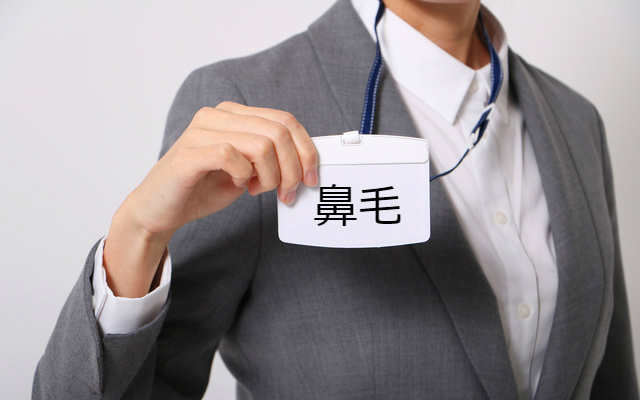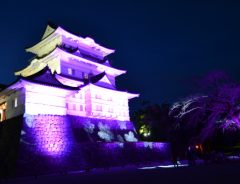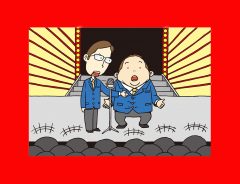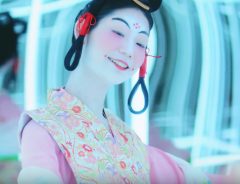
Source: metamorworks / PIXTA(ピクスタ)
‘Nose-hair’ and Other Japanese Family Names That Make People Hate Their Ancestors
- Source:
- nenga.yu-bin
- Tags:
- History / Japanese language / Kanji / Name
Related Article
-

See the Charming Odawara Castle by Taking an Easy Day Trip From Tokyo
-

Japanese class with Ironmouse & Nyatasha Nyanners, the cute VTuber stars from VShojo! [Report]
-

Tokyo 1964 and 2020: How the Olympics Have Transformed the City
-

Easy Kansaiben To Sound Like a Native
-

“Funny Cool” Japanese text tee makes impact at Milan runway show, amuses Japanese Twitter
-

“Utsukushiki” Project Showcases Breathtaking History Of Japanese Beauty


Japan is a country with a population of about 130 million people and about 300,000 different family names. You've probably heard of the common ones like Takahashi or Watanabe, but have you ever come across a rare name with a strange meaning?
In contrast to other Asian countries like China and Korea, whose family names come from ancient clans and noble families, Japanese family names mostly date from the 19th century, after the Meiji restoration. When it was decreed that everyone should have a surname, people were given free rein to decide their own names, resulting in a wide range of monikers.
Despite the name free-for-all, it seems most people went for quite sensible appellations relating to their home region or job. But some adventurous souls just couldn’t resist the temptation of giving themselves a cool, out-there identity, that their descendants are currently reaping the embarrassment of.
Japan Post, who deal with everyone’s names, common or not, on a daily basis, recently introduced on their website some of the rarest and strangest Japanese family names that are still in use today.
Source: HiroS_photo / PIXTA(ピクスタ)
One is 微笑, this is a commonly used Japanese word meaning smile, pronounced as ‘bishou’ or ‘hohoemi’, and the name can also be read either of these ways, depending on the person. This is quite a cute example, and if you believe in nominal determinism, Mr. Bishou is a probably a very happy guy.
Another interesting family name is 東京 (Tokyo). When Emperor Meiji moved the country’s capital from Kyoto to Edo, the city became what we now know as Tokyo. Perhaps the person who took this as a name wanted to celebrate his hometown’s new status.
Source: FE2 / PIXTA(ピクスタ)
Getting much weirder, 鼻毛 (hanage) means nose hair. Not the most flattering name to choose for yourself, but it seems the name came from ‘hana’ denoting a cape (as in on the coast) and the ‘ge’ part meaning underneath. Sadly for Mrs. Hanage, modern Japanese people looking at these characters can only think ‘nose hair’.
Perhaps the ancestor who chose 回り道 (mawarimichi: a detour or diversion) saw themselves as somewhat of an enigma. This name is doubly rare since it doesn’t just have an interesting meaning, but also includes hiragana (a native Japanese character) wedged in between the two kanji (Chinese characters which are usually used for names).
Probably the most intimidating of the rare names mentioned on the site is 無敵 (muteki) which means unrivalled.
As the love-struck Juliet says in Shakespeare’s famous play, a rose by any other name would smell as sweet. There’s no need to get caught up in names. But all the same I think I’d rather have Ms. Smiley Hohoemi as a boss, than Ms. Unrivalled Muteki…